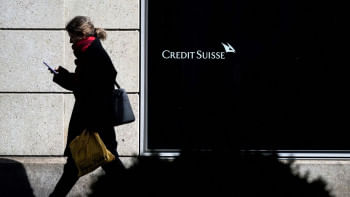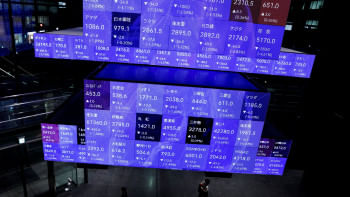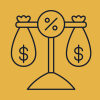Money makes the world go round – and development succeed

The key to economic development and ending poverty is investment. Nations achieve prosperity by investing in four priority areas. The most important is investing in people, through quality education and healthcare. The next is infrastructure, such as electricity, safe water, digital networks, and public transport. The third is natural capital, protecting nature. The fourth is business investment. The key is finance: mobilising the funds to invest at the scale and speed required.
In principle, the world should operate as an interconnected system. The rich countries, with high levels of education, healthcare, infrastructure, and business capital, should supply ample finance to the poor countries. As the emerging market countries became richer, profits and interest would flow back to the rich countries as returns on their investments.
That's a win-win proposition. Both rich and poor countries benefit. Poor countries become richer; rich countries earn higher returns than they would if they invested only in their own economies.
Strangely, international finance doesn't work that way. Rich countries invest mainly in rich economies. Poor countries get only a trickle of funds, not enough to lift out of poverty.
The problem is that investing in poorer countries seems too risky. This is true if we look at the short run. Suppose that the government of a low-income country wants to borrow to fund public education. The economic returns to education are very high, but take 20-30 years to reap. Yet, loans are often for only five years.
Suppose the country borrows $2 billion today, due in five years. That's okay if, in five years, the government can refinance the $2 billion with yet another five-year loan. With five refinance loans, each for five years, debt repayments are delayed for 30 years, by which time the economy will have grown sufficiently to repay the debt without another loan.
Yet, at some point along the way, the country will find it difficult to refinance the debt. Perhaps a pandemic, or Wall Street banking crisis, or election uncertainty will scare investors. When the country tries to refinance the $2 billion, it finds itself shut out from the financial market. Without enough dollars at hand, and no new loan, the country defaults, and lands in the IMF emergency room, followed by cuts in public spending, social unrest, and prolonged negotiations with foreign creditors.
Knowing this in advance, credit-rating agencies like Moody's and S&P Global give the countries a low credit score, below "investment grade." As a result, poorer countries are unable to borrow long-term and pay punishingly high interest rates. While the US government pays less than four percent per year on 30-year borrowing, poor countries often pay 10 percent on five-year borrowing.
The IMF, for its part, advises the governments of poorer countries not to borrow very much. In effect, the IMF tells the government that it is better to forgo education (or electricity, or safe water, or paved roads) to avoid a future debt crisis. That's tragic advice! It results in a poverty trap, rather than an escape from poverty.
The situation has become intolerable. The poorer half of the world is being told by the richer half: decarbonise the energy system; guarantee universal healthcare, education, and access to digital services; protect rainforests; ensure safe water and sanitation; and more. And yet, they are told to do all this with a trickle of five-year loans at 10 percent interest!
The problem isn't with the goals. These are within reach, but only if the investment flows are high enough. Poorer nations need 30-year loans at four percent, not five-year loans at more than 10 percent, and they need much more financing.
There are two main solutions. The first is to expand roughly fivefold the financing by the World Bank and regional development banks (such as the African Development Bank). Those banks can borrow at 30 years and around four percent, and on-lend to poorer countries on highly favourable terms. Yet, their operations are far too small. To scale up, the G20 countries (including the US, China, and EU) need to put more capital into the multilateral banks.
The second is to reorient the global financing system towards long-term sustainable development, with better advice, planning, and accurate ratings. The major countries will have four meetings on global finance this year: in Paris in June, Delhi in September, the United Nations in September, and Dubai in November. If the big countries work together, they can solve this. That's their real job, rather than fighting endless wars.
Jeffrey D Sachs is a world-renowned economist, academic, and public policy analyst who serves as the director of the Center for Sustainable Development at Columbia University.

 For all latest news, follow The Daily Star's Google News channel.
For all latest news, follow The Daily Star's Google News channel. 






Comments